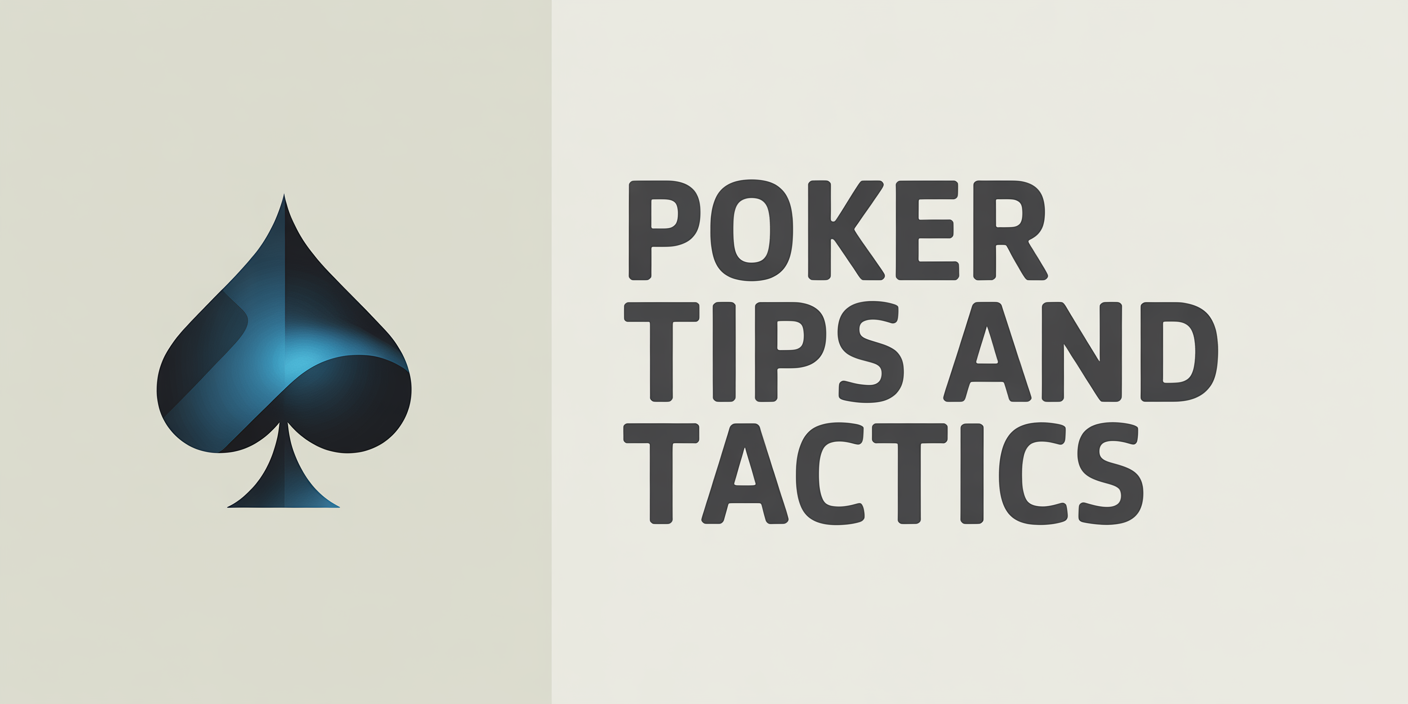Poker Tips and Tactics

Poker has been described as easy to learn but hard to master. This page will offer some tips to help you on your way to becoming a successful poker player, with some fundamental poker strategy and tips for newer players, along with a couple of more advanced concepts to consider once you have a firm understanding of the basics.
Basic Poker Strategy Considerations
Tip 1: Options for the New Poker Player
You may play poker as a serious study or play poker for recreation (or maybe both). In any event, playing at a consistent winning level requires time and effort. That is, it does require work. There is absolutely nothing wrong with playing poker for recreation, but there is no reason to expect to lose, even if you are playing for recreation. But knowing what type of poker player you want to be before you begin will make your sessions easier and your decisions.
Tip 2: Know the Lingo and Phrases
It's no secret that poker is loaded with jargon. Don't be confused at the tables by starting to study what some of the more significant phrases are.
First of all, we recommend that you take a look at our Poker Dictionary where you'll be able to read a range of poker terms and definitions. There's a lot of poker slang but after a few games, you'll quickly get used to the language and the way that phrases are used.
Tip 3: Make Good Decisions – the Results Will Follow
Even the world's best poker players have losing sessions. Don't be guilty of thinking you are going to win every single time you play. Your goal should be to play each session as well as you possibly can. If you do, the cards and the profits will take care of themselves as you improve.
What most players do wrong is judge their poker playing ability based on the outcome of each session. Your goal needs to be to make the absolute best play every single time. The closer you come to achieving this, the more successful you will be.
If you’re exploring different poker formats to apply your strategy, reading trusted Caribbean Stud Poker Casino Bewertungen can provide insights into where to play, what to expect, and how this specific variation compares with others in terms of odds and gameplay style.
Tip 4: The Mathematics of Poker
Poker is a mathematical game, and a game of incomplete information. That is perhaps a bit more complex than it needs to be. At its very simplest, winning at poker starts with a decision about which starting hands to play. If you enter the pot with the best hand more often than your opponents, you will win more often than your opponents.
Tip 5: Beyond Starting Hands
Starting hand selection is incredibly important, but it's only one part of the poker strategy puzzle. Once you've mastered solid starting hand fundamentals and how they change by table position, the second thing you have to concentrate on is your play for the rest of the hand. The distinction which arises between amateurs and professional players is that professional players play significantly better than their opponents for the remainder of the hand, after the decisions of starting hands have been made.
This is especially so with the decisions at the very end of each hand. These skills are pot odds calculation, reading betting patterns, bluffing, and position. The years it takes to master the middle and end game play are worth it, as even small improvement of a player's skill can make an enormous difference in that player's lifetime winnings.
Tip 6: Don't Go on Tilt
Not going on tilt is one more meta-skill that a winning player needs to add to his or her poker game. Your opponents will play on your emotions, if you let them. Emotional play equals bad decisions and lost money. Tilting and steaming happen to anyone, and sometimes the only cure is to step away from the game for a while. That is okay; the game will still be there ten minutes later. In fact, it will still be there tomorrow.